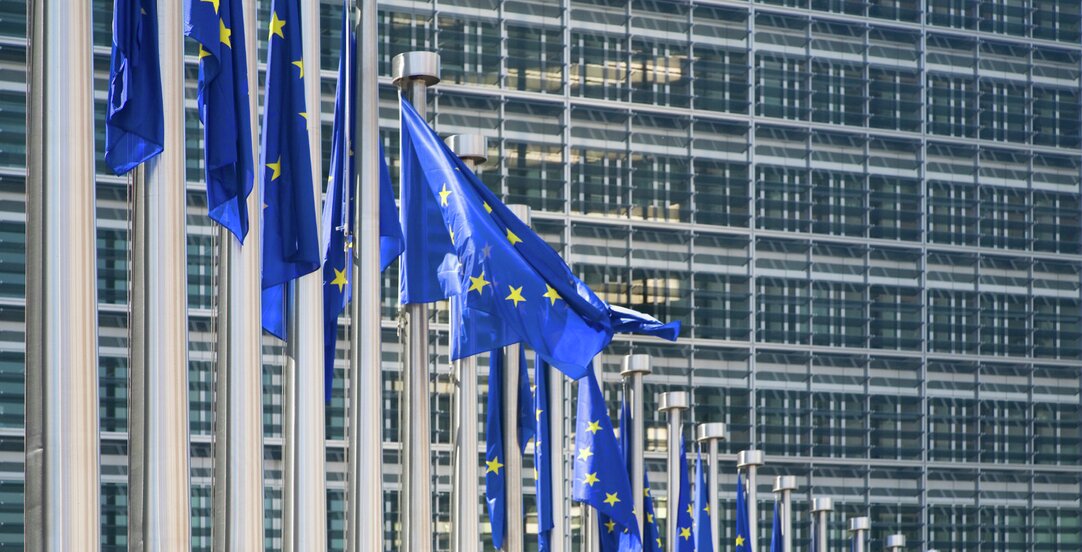What you need to know about the new UK sanctions regime post-Brexit

As the Brexit transition period has recently come to an end, we highlight below some key differences brought about by the UK's new sanctions regime and what you need to know about the new regime.
Lesetid 9 minutter
At midnight CET on 31 December 2020, the transition period governing the UK's departure from the EU came to an end. At the same time, the Sanctions and Anti-Money Laundering Act 2018 ("Sanctions Act") – establishing the UK's new sanctions regime – entered into force, with the most immediate consequences being that existing EU sanctions regimes have been re-implemented through UK legislation and that EU sanctions no longer apply in the UK.
The UK's financial sanctions regime applies within the territory of the UK, and to all UK persons, wherever they are in the world. This means that:
- all individuals and legal entities who are within or undertake activities within the UK’s territory must comply with UK financial sanctions; and
- all UK nationals and UK legal entities established under UK law, including their non-UK branches, must also comply with UK financial sanctions that are in force, irrespective of where their activities take place.
Summary of key changes
Although the new UK sanctions regime, at least initially, broadly replicates existing EU sanctions, there are some notable differences:
- Revised wording: the re-drafting of existing sanctions measures into UK law has resulted in what the UK government terms "clearer and more specific drafting". As seasoned Sanctions Alert readers will know, seemingly minor drafting amendments can result in substantive changes to the practical interpretation and application of the measures. One example of this is the EU prohibition on "financial assistance", related to certain designated activities, which does not include payment processing and money transmission services. The new UK regime, however, uses the term "financial services", which is broader and does include payment processing and money transmission.
- Sanctions regime changes: some former EU regimes have been merged, separated or renamed. For example, the EU's separate restrictive measures covering each of Ukraine (Crimea) and Russia have been merged into one regime covering Russia and Crimea (although the UK's regime is still stated to deliver "substantially the same effect" as existing EU sanctions). The UK has also introduced five thematic sanctions regimes, three of which relate to counter-terrorism measures, whereas the other two cover chemical weapons and cyber. Even where the regimes remain largely similar to pre-existing EU regimes, however, the most notable change is that companies operating in both the EU and the UK will need to consider possible exemptions and authorisations in both territories, as authorisations from or exemptions applicable in one but not the other, may not be sufficient. Potentially affected businesses would do well to acquaint themselves with the names and scope of the new UK regimes, both for future sanctions due diligence, and to ensure existing operations remain compliant.
- Designation of sanctioned persons: the UK's Office of Financial Sanctions Implementation ("OFSI") will continue to maintain its Consolidated List of financial sanctions targets (the "Consolidated List") across all financial sanctions regimes implemented in the UK, with the exception of entities subject to sectoral sanctions in view of Russia's destabilising actions in Ukraine, which will be published in a separate list. The Consolidated List no longer automatically includes EU designations, exemplified by the fact that there are 113 people / entities subject to EU sanctions that have not been included on OFSI's revised Consolidated List (as of 1 January 2021). It is also worth noting that a different legal test now applies for designation of sanctioned persons in the UK (described in more detail below). OFSI has published a bridging document to help facilitate sanctions screening as a result of the changes to the list.
- Licences: there have been certain changes to financial sanctions licensing grounds (see below for more detail). In addition, only licences granted by the UK will be valid in the UK, and UK-granted licences will not be valid for activity in other EU Member States.
Designations
As under the EU regime, the new UK regime also provides for financial prohibitions (designations) in relation to so-called designated persons. Designated persons are persons (natural or legal) who are subject to financial sanctions, including but not limited to investment bans, asset freezes and restrictions on making funds and/or economic resources available to, or for the benefit of, such designated persons, either directly or indirectly.
Under EU law, the legal test for designation of sanctioned persons (including legal persons) is a "necessity test", which requires the designation to be appropriate, in pursuit of a legitimate objective and proportionate to the aim (bearing in mind the consequences on the designated person).
In contrast, under the UK Sanctions Act, the requirement is that an "appropriate minister" must:
- have "reasonable grounds to suspect" that a person is or has been involved in a specified activity (including persons owned/controlled/acting on behalf of such person),
- consider the designation "appropriate", given the purpose of the particular sanctions regime, and
- have regard to the "likely significant effects" of the designation on the designated person.
On its face (and in the absence of specific guidance or application in practice), the UK's new designation test appears to require a lower threshold than the EU test, leaving more discretion to the "appropriate minister" to determine designations. The different thresholds may therefore result in the UK making designations that do not meet the "necessity" threshold under EU law, in turn leading to a divergence in designations between the two regimes.
Another diverging factor is that the Sanctions Act also provides for the designation of persons or entities by description, where it is not practicable to identify and designate by name all the persons falling within the description at the time. The description must be sufficiently clear so that "a reasonable person would know whether that person fell within it". The UK Government has yet to issue any guidance on how this would be applied in practice, but it is easy to imagine the challenges such designations by description might present to companies' sanctions compliance programmes and screening in determining whether a person falls within a designated description.
Consequences of designations
As with the previous regime, the Consolidated List includes persons who are subject to an asset freeze or restrictions on their activities regarding financial markets and services, and provides information to help businesses decide whether they are dealing (and therefore need to stop dealing) with someone who is subject to such sanctions. An asset freeze and some financial services restrictions (to the extent applicable) will also apply to entities that are owned or controlled, directly or indirectly, by a designated person. Those entities may not be designated in their own right, so their names may not appear on the Consolidated List. However, those entities are similarly subject to financial sanctions.
An entity is owned or controlled directly or indirectly by another person where: (i) the person holds (directly or indirectly) more than 50% of the shares or voting rights in the entity; (ii) the person has the right (directly or indirectly) to appoint or remove a majority of the board of directors of the entity; or (iii) it is otherwise reasonable to expect that the person would be able to ensure the affairs of the entity are conducted in accordance with the person’s wishes.
If any of these criteria are met, then financial sanctions will apply to the controlled entity in its entirety (meaning these assets should also be frozen and funds or economic resources cannot be made available to the entity). To simplify compliance for businesses, the UK Government has stated that it will look to designate owned or controlled entities/individuals in their own right where possible.
Licensing
The vast majority of licences that have been issued by OFSI under EU regulations will continue to remain valid until they expire or are revoked. New specific licences issued after 31 December 2020 will be issued under so-called derogations (licensing grounds) set out in the new UK regulations.
As noted above, there are a number of specific changes to financial sanctions licensing grounds, including a new derogation for "extraordinary situations". In addition, the power to issue general licences has been introduced for the first time, permitting multiple parties to undertake specified activities which would otherwise be prohibited under the sanctions regime, without the need for a specific licence/derogation. Such general licences have long been available under various US sanctions programmes, but not under the current EU (and previous UK) regime. OFSI envisages that such licences may be used to "respond to unforeseeable circumstances [and] technical implementation issues". General licences will include requirements to notify OFSI of any use of such licences, and keep records of any activity undertaken. On 1 January 2021, OFSI published its first general licence, granting payment exemptions in relation to certain seaports in Crimea.
For persons subject to both UK and EU jurisdiction, it is worth bearing in mind that a UK general licence will not provide an exemption from the need to apply for a specific licence in the relevant EU Member State(s), which will add an additional layer of complexity to companies' sanctions compliance programmes.
Penalties for non-compliance
There is no change to the maximum penalties for breaches of financial sanctions: the maximum custodial sentence for a breach of financial sanctions is a term of 7 years' imprisonment. Her Majesty's Revenue and Custom's (HMRC) civil monetary penalty powers also remain unchanged. However, whether the newfound independence will in fact result in OFSI taking a more proactive role in sanctions enforcement remains to be seen.
Conclusion
During the past 12 months, OFSI has indeed been signalling that it intends to take a more active role going forward. Notable activities have included the implementation of a new Global Human Rights regime (recently followed by the EU), and the publication of financial sanctions guidance for entities and individuals operating in the maritime shipping sector.
In the short term, the practical consequences of Brexit and the transition period coming to an end are likely to be limited. The UK's sanctions policy objectives look set, for the time being, to remain much the same as they have been under the EU regime, and the UK and the EU have announced that they intend to cooperate as much as possible on sanctions policy following the end of the transition period. The UK government has also announced that international cooperation will remain at the heart of UK sanctions policy, as "sanctions are most effective when implemented and enforced collectively".
From a legal perspective, however, it is clear that the UK's new sanctions regime opens the door for a greater degree of regulatory divergence than has been possible to date. Further, despite its talk of cooperation, the UK government has left no doubt that "the United Kingdom and the European Union will pursue independent sanctions policies" and confirmed its intention to introduce "autonomous UK sanctions". Companies operating in both the UK and the EU will need to remain vigilant and ensure they stay on top of developments in both regimes, as – similarities notwithstanding – it cannot simply be assumed that compliance with one will automatically mean compliance with the other.
Summary: what you need to do now that the transition period has come to an end
- Read the UK Government's sanctions regime guidance, which sets out a list of the UK regimes, legislation and guidance previously made in preparation for the end of the transition period, and which will continue to be updated as remaining legislation is completed in the coming months.
- If the UK has not yet made UK regulations to replace an EU sanctions regime, refer to any EU Council Regulations retained under the EU Withdrawal Act 2018, which may have been modified by regulations made under that Act.
- Screen the OFSI Consolidated List and review the bridging document published to help facilitate sanctions screening as a result of the changes to the List.
- Check OFSI's list of recently published guidance documents, including but not limited to:
- Monetary Penalties for Breaches of Financial Sanctions (July 2020)
- Russia Guidance (June 2020)
- Maritime Guidance
OFSI is expected to publish additional guidance relating to several of its new regimes during the course of 2021.
Going forward we will keep you updated on material developments in the UK sanctions regime as part of our WR Sanctions Alert service.
WR Sanctions Alerts provide you with updates on material developments in the country-specific sanctions programmes implemented by the US, the UN, the UK, the EU and Norway. We will not provide updates on mere prolongations, without material changes, of existing sanctions programmes, nor on any listings or de-listings of individuals/entities placed on implemented sanctions lists. Please note that the WR Sanctions Alerts are provided as general information and do not constitute legal advice.

